Enduring message for the generations
Updated 8 September 2020
What to make of a small, rectangular piece of needlework into which is stitched a plaited lock of hair and on which is inscribed: “TOKEN (or TOKEII) A TO W S”? …. Or should it in fact read: “A TOKEN TO W S”?
It is found in a large, heavy, leather-bound Bible with brass clasps that most likely belonged to my great-grandmother Janet Silver (nee Todd) who married James Silver in Brisbane, in 1892.
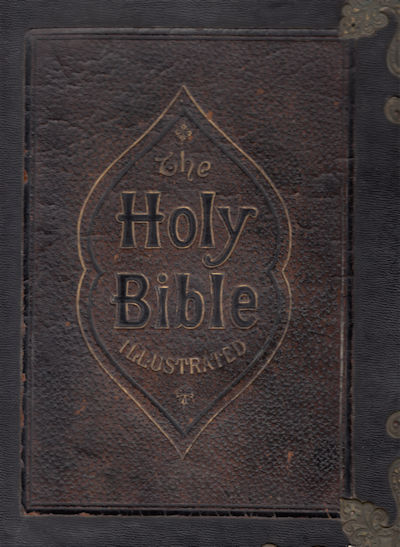
The cover of the family Bible handed down by James and Janet Silver to Alex and Bella Dobbs and their descendants. It’s likely that the Bible was a wedding gift in 1892 from Janet Todd’s parents when she left Scotland to come to Australia where she married James Silver in Brisbane, Queensland. Click for larger view.
The delicate piece was apparently crafted by my maternal grandmother Bella Dobbs (nee Silver).
Those of us who spent time at our grandparents’ farm at Boolburra will well remember the Bible.
Many of us will have thumbed through it and read the few entries that included our grandparents’ and great-grandparents’ names along with later generations.
Some of us added our own entries as well.
Until recently (September 2020), when the Bible was given to me to care for, I was unaware of this wonderful piece of needlework. By the way, it measures 11cm x 5cm (4.3 ins x 1.9 ins).
What does the inscription mean?
As nice as that is, the more puzzling thing is what the wording actually means … “TOKEN (or TOKEII) A TO W S” … or “A TOKEN TO W S”.
And does it really mean anything other than the seamstress was simply practising?
If you have a look at the image above and, even better, if you click on this link and see the larger version on a separate page, can you determine if there is another way to interpret the letters?
So who, or what, is W S? It doesn’t represent anyone with the Silver surname, for instance.
My mum believes her mother put the piece together for her twin sisters, Eva and Nettie. Eva lived to 98 but Nettie died just short of her second birthday.
Token to wonderful sisters?
That being a possibility … how about it meaning “A Token To Wonderful Sisters”?
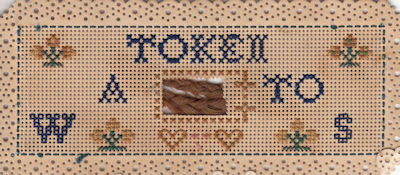
The very interesting piece of needlework that includes some plaited hair and the inscription: “TOKEN (or TOKEII) A TO W S” … or “A TOKEN TO W S”. Click for larger view.
That could be the case given another of grandma’s sisters, Grace, also died before her second birthday.
On that basis, grandma may have put the piece together in remembrance of the passing of her sisters Grace (in 1897) and Nettie (in 1901).
We also have to ask why the hair was woven into the piece. The hair is either from one of the babies and may well be from Grace given that Nettie had blonde hair.
All of that is speculation. If anyone has any other explanation they’d like to share, I’m happy to consider it.
More than just Scripture
Back to the Bible itself which is far more than a reproduction of the 66 books of the Old Testament and New Testament that Christians have read, loved and studied for generations.
It is a study Bible, very common nowadays, but it would have been a special and treasured possession that young Janet Todd brought out from Scotland back in 1892.
The first title page reads, “The Illustrated Family Bible With Explanatory, Critical And Devotional Commentary.” The rest of the page has an illustration (click to view) with reference to the Cross and Moses and the serpents in the wilderness and quotes John 3:14: “As Moses lifted up the serpent in the wilderness, even so must the Son of man be lifted up.”
The explanatory notes are the work of Rev John Brown, an 18th Century Scottish minister whose systematic theology has stood the test of time in the eyes of many.
Self-taught, John Brown rose to be a professor of divinity in the Scottish Presbyterian Church.
Not surprisingly, my great-grandparents fellowshipped in the Presbyterian church, and James Silver, who was a carpenter, built churches as well as other public buildings on the Darling Downs.
Wonderful illustrations
Typically, the Bible contains various teaching and study suggestions including marginal references and timelines that Christ followers understand to be the true history of humanity.
There are many wonderful illustrations that bring to life some Bible events such as Christ welcoming the little children, David playing the harp before King Saul, Christ calling Matthew the tax collector, and the tabernacle in the wilderness.
The images that follow are from the Bible.
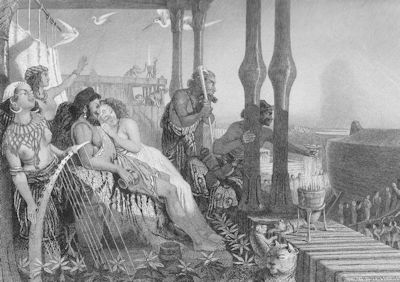
Eve of the deluge.
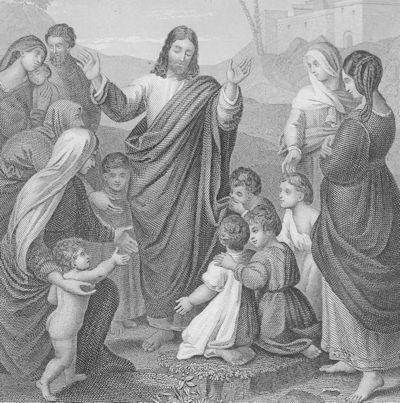
Christ blessing little children.
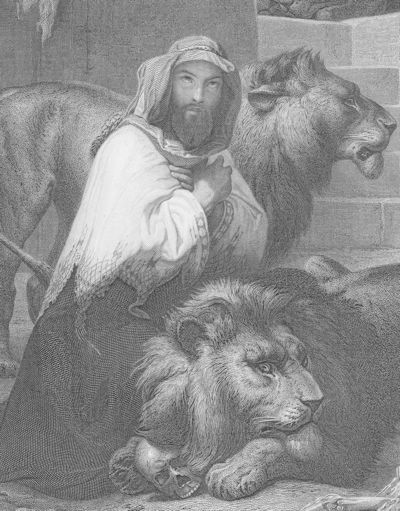
Daniel in the lions’ den.
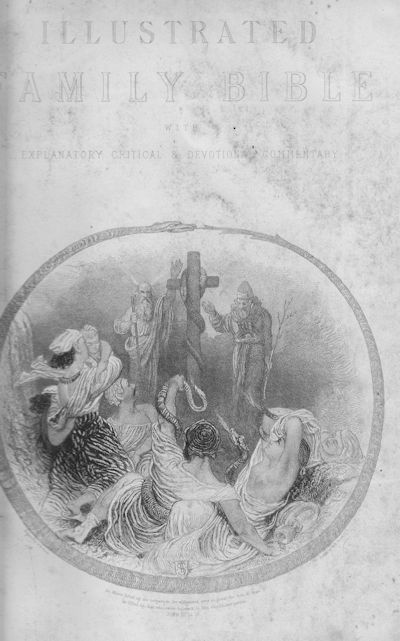
Bible explanatory page.
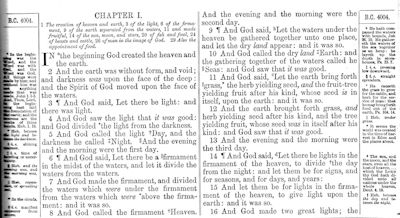
Genesis chapter one.
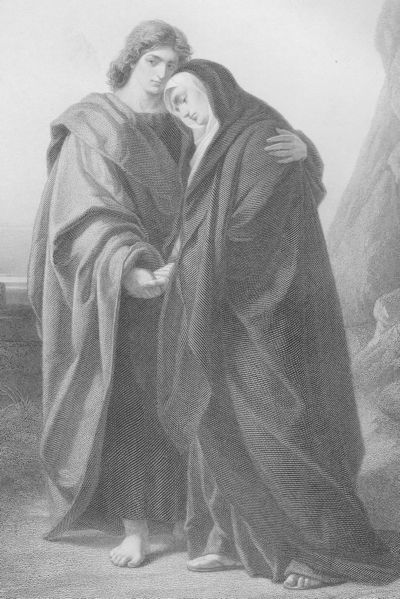
John and Mary at the sepulchre.
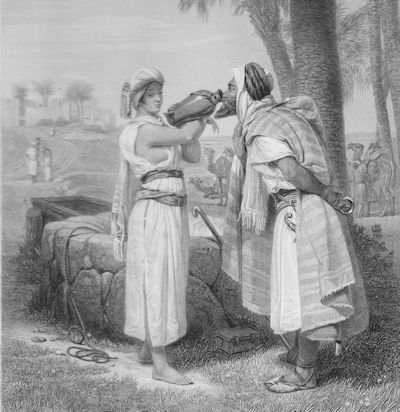
Rebekah and Eliezer.
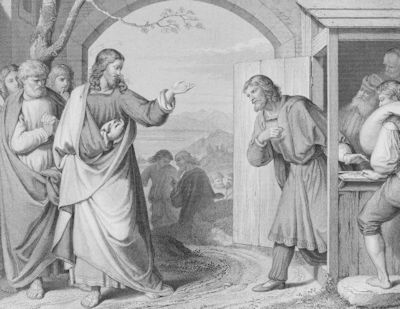
The call of Matthew.
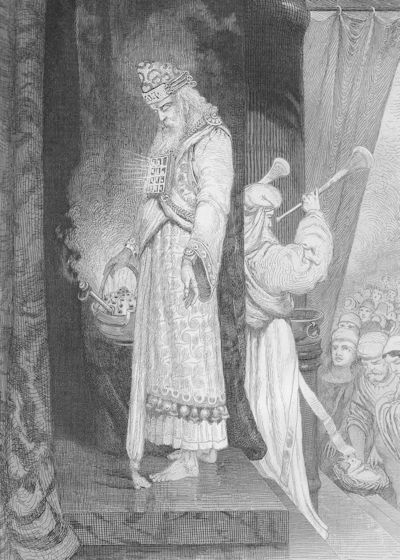
High Priest with ephod and breastplate entering the Holy Place.
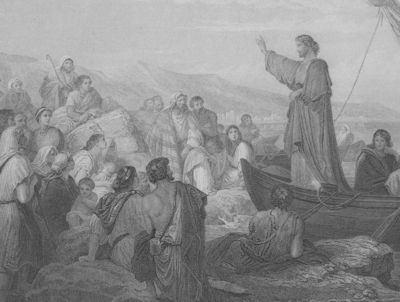
Christ teaching by the sea.
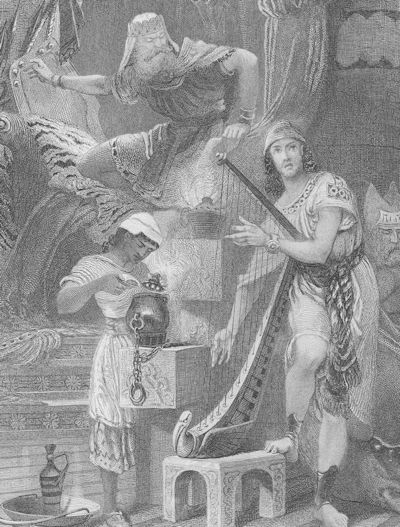
David plays before Saul.
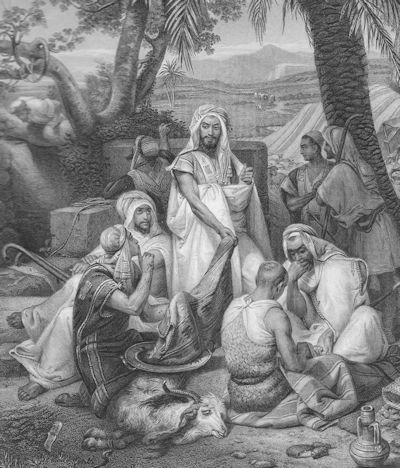
Joseph sold by his brothers.
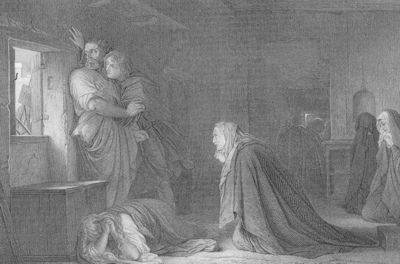
Our Lord passing to Calvary.
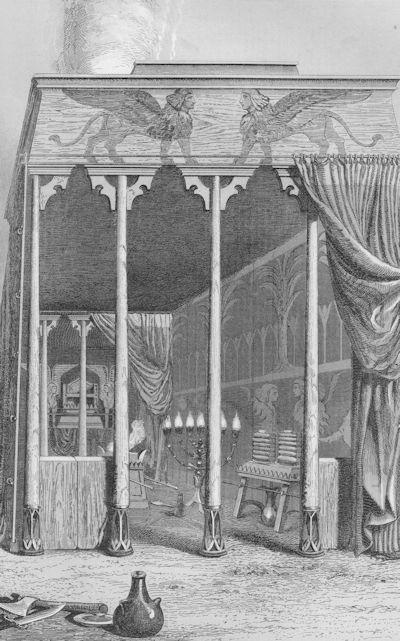
The Tabernacle in the wilderness.
